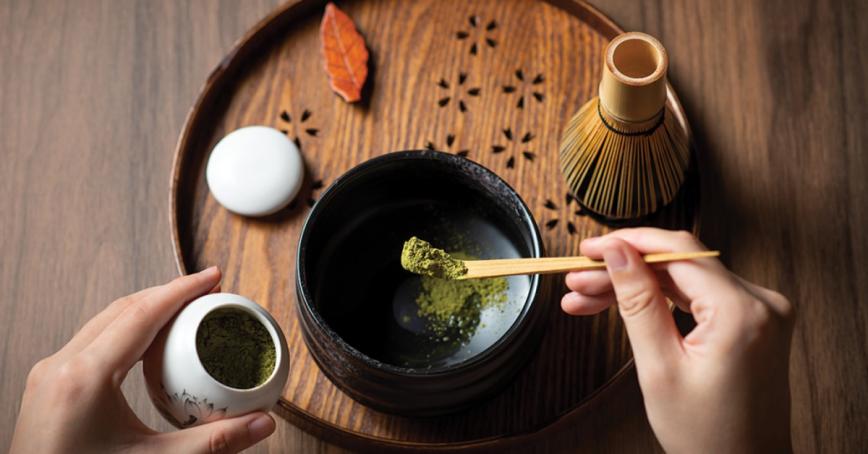A new teahouse will bring Japanese culture to Royal Roads

For more than a century, the Japanese gardens at Hatley Park have been an attraction for visitors from near and far. Lush, green and peaceful, they impressed guests of the wealthy Dunsmuir family, and then, for 55 years, provided respite for hardworking cadets at the Royal Roads Military College. For the last 27 years, the gardens have provided a place for a tranquil stroll for students, staff and others who came to the sprawling campus of Royal Roads University.
For all those visitors, the Japanese gardens made a beautiful piece of Eastern tradition accessible and welcoming to Western eyes.
Now, another bit of Eastern culture is in the works as part of Royal Roads’ A Vision in Bloom, a fundraising campaign to restore and maintain the university’s historic gardens and related facilities.
Thanks to a generous lead donation from a Vancouver Island family that wishes to remain anonymous, plans for the large-scale revitalization of the Japanese gardens include a Japanese teahouse where formal tea ceremonies, among other events, may be held.
Harmony, respect, purity, tranquility
According to a background document on the Japanese tea ceremony from Ogawa Landscape Design of Burnaby, BC, which is leading the Japanese gardens project, “Teahouses are structures created for the practice of the Japanese tea ceremony, known as chadō or sadō, ‘the way of tea.’
“The tea ceremony is a meditative practice with roots in Zen Buddhism but there is no overt religious meaning in the ceremony,” the document continues. “Participants remove themselves from the world to enter a ceremony that encourages a state of being fully present in the moment, free from worldly thoughts.”
As well, “The tearoom is a unique space where the host and guests gather to share time without thinking about worldly concerns. It is not ostentatiously decorated; it is free of tables and chairs, and the host and guests interact with each other sitting on the floor.”
The tea ceremony has four principles: wa (harmony), kei (respect), sei (purity) and jaku (tranquility).
“Harmony is shown in the interaction between the participants, as well as between the utensils and seasons,” according to the Ogawa information. “Respect between host and guest, and between the guests themselves, is vital. Purity from the heart is extended to all present and to the utensils. It is both spiritual and physical. Tranquility… can be attained when you grasp the essence of the other three.
“These ideals are universal and show that the values of tea are timeless.”
Learning for locals and ‘worldwide visitors’ to RRU
Hayato Ogawa, owner of Ogawa Landscape Design and a renowned landscape designer, says of the RRU project: “We plan to build a tearoom, tea garden, Zen garden, cherry blossom community area and bonsai garden. Since Japanese Gardens have traditionally held tea ceremonies, we think it is important to establish such an area to be enjoyed by worldwide visitors to the university.
“This garden represents strong and cherished traditions from the past that should be carried over to the present and future,” he adds. “It is a place for us to interact and co-exist with nature. It is a place for learning and enhancing culture.”
“Royal Roads is a place of learning and that’s not limited to our classrooms or our online courses,” says Philip Steenkamp, RRU’s president and vice-chancellor.
“Just as our kitchen garden offers chances to learn about food security and sustainability, our Japanese gardens provide a place where visitors can immerse themselves in, perhaps, a culture different from their own.
“I’m excited that the teahouse will add to these opportunities while providing another venue on our campus where we can host special gatherings.”
A teahouse and more amidst tranquil natural surroundings
The Teahouse will be built in a Japanese style and will achieve modern goals for accessibility. Vera Gammert, RRU’s project manager for capital projects, says up to 20 people will be accommodated at tea ceremonies, and the structure is designed to blend in with surrounding garden elements while using only natural sources of heating and cooling.
Noting the Hatley Park grounds also attract many special events such as conferences and weddings, she says, “Most people come to the gardens for the tranquility, for the Zen of the Japanese gardens and the beauty, of course. Part of the idea is we feel doing something like this will make us even more of a destination place for people to visit.”
Join us with a donation to keep good things growing! There are many ways to support A Vision in Bloom.